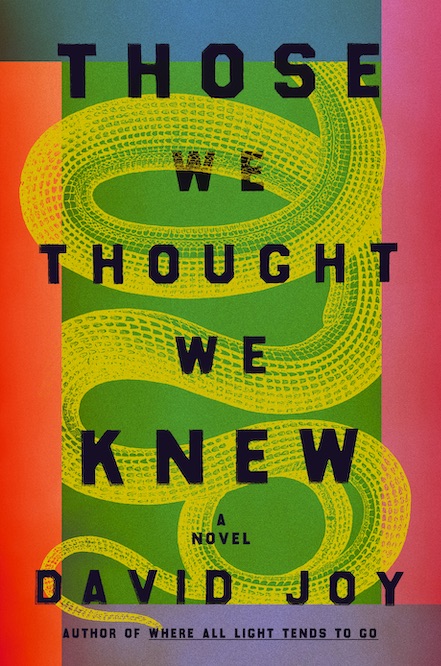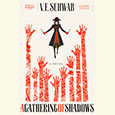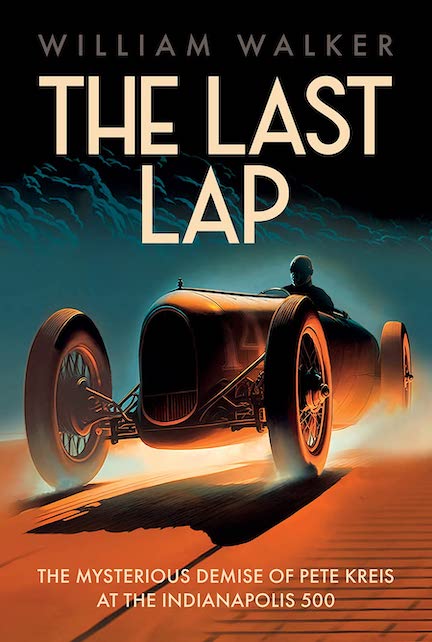Last Words
Love, life, and loss are inseparable in Jill McCorkle’s new novel
In the first pages of Jill McCorkle’s luminous new novel, Life After Life, a dying man instructs his caregiver to keep a written account of each patient she tends, recording a few facts about their lives, as well as their favorite memories and bits of wisdom, and, of course, their last words. “Don’t ever let us disappear,” he says. That directive takes on an ironic cast as the multi-layered story of <cite progresses. Virtually every character in this heavily populated novel, from a lonely little girl to an eighty-five-year-old woman on the cusp of death, is haunted by the memory of some lost loved one. Far from disappearing, the dead are ever-present.
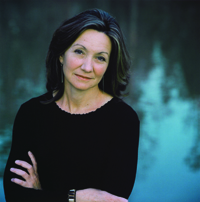 The novel is set in a retirement home, Pine Haven, in fictional Fulton, North Carolina, where an assortment of feisty old folks has created a contentious little community that mirrors the world they’ve retreated from. There’s a yoga-loving lesbian; a lecherous, wrestling-obsessed man with dementia; a Bible-thumping widow who keeps a scrapbook of clippings about murder; and a former lawyer—a Jew from Boston—who has made the unlikely choice to come to Pine Haven for reasons she can’t reveal. The eighty-five-year-old, Sadie, is a former schoolteacher who functions as the peacemaker and social core of the group. A loving woman who “has always seen the sunnier side of life,” Sadie creates fantasy photographs of herself and her fellow residents, providing artifacts of the lives they wish they had lived.
The novel is set in a retirement home, Pine Haven, in fictional Fulton, North Carolina, where an assortment of feisty old folks has created a contentious little community that mirrors the world they’ve retreated from. There’s a yoga-loving lesbian; a lecherous, wrestling-obsessed man with dementia; a Bible-thumping widow who keeps a scrapbook of clippings about murder; and a former lawyer—a Jew from Boston—who has made the unlikely choice to come to Pine Haven for reasons she can’t reveal. The eighty-five-year-old, Sadie, is a former schoolteacher who functions as the peacemaker and social core of the group. A loving woman who “has always seen the sunnier side of life,” Sadie creates fantasy photographs of herself and her fellow residents, providing artifacts of the lives they wish they had lived.
If Sadie is the heart of Pine Haven, then Joanna, the record-keeping caregiver, is its spirit guide. After surviving her own brush with death, she has made a vocation of tending the dying and their families. She has ushered many Fulton residents into the afterlife, including the spouses of Marge and Stanley. Joanna’s existence as Fulton’s angel of death is a lonely one. Because the families she comforts can’t help associating her with their grief, she has become a sort of sacred outcast. The people she has seen in their darkest moments shy away from her: “Like Pavlov’s dogs, they react to her presence.”
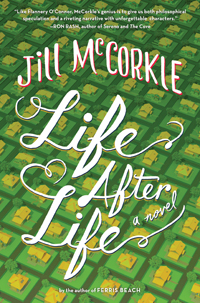 Joanna’s checkered personal history doesn’t help her popularity, either. But she is very much a hometown girl and an important link between Pine Haven and the outside community, which includes her childhood love, Ben; his monstrous wife; and their unhappy ten-year-old daughter, Abby. Ben was Sadie’s student and still comes to visit her at Pine Haven. Little Abby is deeply attached to Sadie, as well, and the feeling is mutual. There’s a more ambivalent bond between the old folks and Joanna’s friend C.J., a tattooed and pierced single mom who serves as their beautician.
Joanna’s checkered personal history doesn’t help her popularity, either. But she is very much a hometown girl and an important link between Pine Haven and the outside community, which includes her childhood love, Ben; his monstrous wife; and their unhappy ten-year-old daughter, Abby. Ben was Sadie’s student and still comes to visit her at Pine Haven. Little Abby is deeply attached to Sadie, as well, and the feeling is mutual. There’s a more ambivalent bond between the old folks and Joanna’s friend C.J., a tattooed and pierced single mom who serves as their beautician.
The Pine Haven residents inLife After Life are contemplating their own deaths, but almost everyone is already in mourning for someone or something. Abby has lost her adored dog. Sadie still grieves for her mother, who died young. Joanna mourns a brief failed marriage and the loss of the stepchildren she loved. C.J. is bitter about the loss of her mother to suicide. All of them are trying to reconcile themselves to loss, some more successfully than others.
This all might sound a little maudlin in the telling, but Life After Life never descends into sentimentality, in part thanks to McCorkle’s skill at revealing the complicated inner lives of her characters. The doddering Pine Haven cohort may be undignified, even comical—in fact, a few scenes in the novel are hysterically funny—but they suffer genuine grief and torment. Their troubled inner lives emerge through an intricate narrative made up of Joanna’s reports, brief glimpses into the minds of the dying in their final moments, and third-person storytelling that shifts focus from character to character, slowly uncovering the secrets of each. Rachel, the high-powered Boston lawyer, turns out to be obsessed with an erstwhile lover from Fulton. The raunchy, addled wrestlemaniac, Stanley, is revealed to be a man wracked by guilt for sins as small as failing to hold his wife’s hand: “Oh sure, trace it back to hard parents, hard living,” he thinks, “but how awful to come to the end and see that all you’ve been is another goddamned link in the chain that keeps out the happiness.”
There are darker secrets that come to light in Life After Life; in fact, its gentle opening ultimately leads to some rough action that lifts the whole plot well out of Golden Girls territory. The final pages deliver a romance, a joyous resurrection, and a peaceful death, but all this sepia-toned happiness is counterbalanced by a horrific act of violence—a reminder that a gentle death is indeed a blessing, that the cycle of life and loss never ends.
[This review appeared originally on April 10, 2013.]
Jill McCorkle will read from and sign Life After Life at the twenty-fifth annual Southern Festival of Books, held in Nashville October 11-13. All festival events are free and open to the public.
